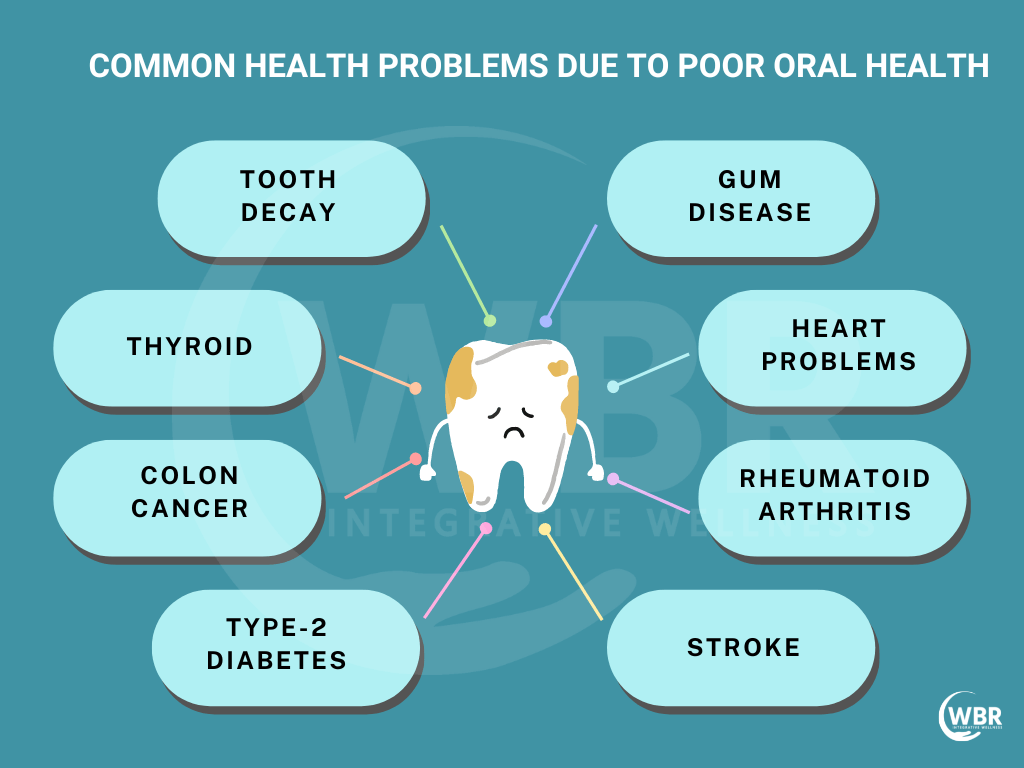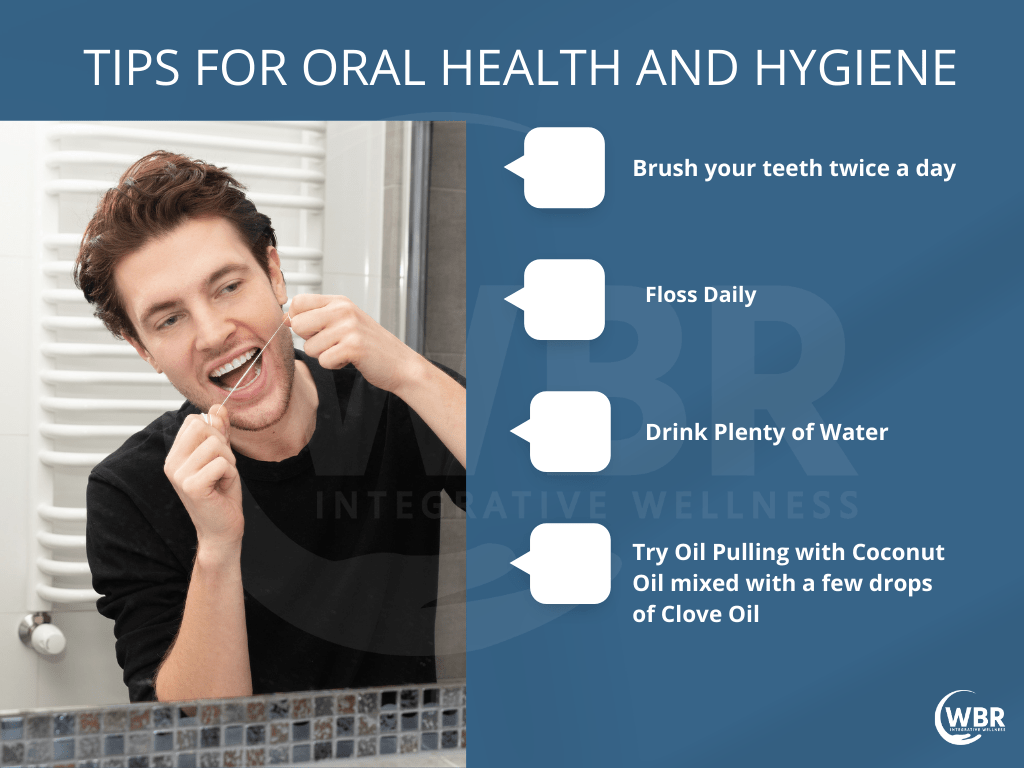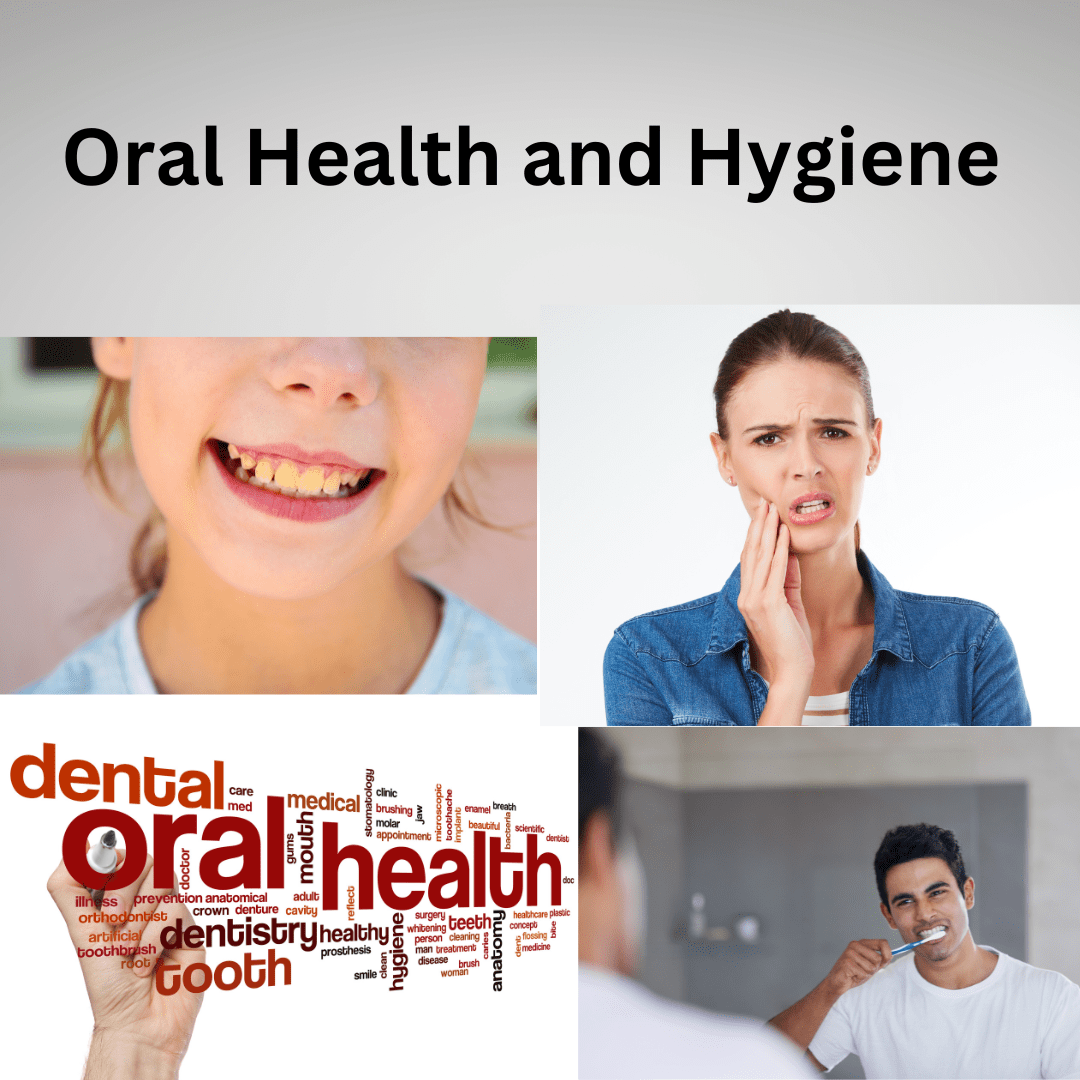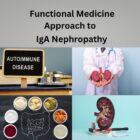Guidelines to Oral Health and Hygiene
Good oral health and hygiene are essential for overall health and well-being. Not only do healthy teeth and gums look and feel good, but they also play a vital role in our ability to speak, eat, and enjoy a variety of foods. Unfortunately, many people struggle with maintaining good oral health due to a lack of knowledge about proper oral hygiene practices. In this blog, we will provide tips for maintaining good oral health and hygiene, including the best ways to brush and floss, the role of mouthwash and water in oral health, and the importance of visiting the dentist regularly. By following these tips, you can enjoy a healthy smile and improved overall health.
Causes of Bad Oral Health
Several factors contribute to poor oral health. These include:
- Poor oral hygiene: Not brushing teeth regularly and thoroughly, as well as not flossing daily, leads to a build-up of plaque and bacteria in the mouth, which leads to tooth decay and gum disease.
- Diet: Consuming a diet high in sugary and acidic foods and drinks damages teeth and lead to tooth decay..
- Tobacco use: Smoking and chewing tobacco cause bad breath, yellowing of the teeth, and increase the risk of oral cancer.
- Dry mouth: Saliva helps to neutralize the acid in the mouth and wash away food particles, so a lack of saliva (due to medications or other factors) often leads to an increased risk of tooth decay and gum disease.
- Genetics: Some people may be more prone to oral health problems due to inherited factors.
- Medical conditions: Certain medical conditions, such as diabetes and HIV compromise the immune system and make individuals more susceptible to oral health problems
Bad Microbiomes in Teeth
The bacteria that live in your mouth and on your teeth are both good and bad for your oral health. The good bacteria help to keep the bad bacteria in check. They also prevent them from causing problems like tooth decay and gum disease.
Gum disease, also known as periodontitis, is an infection of the gums and other supporting structures of the teeth. It results from bacteria that build up along the gum line, forming a sticky film called plaque. If plaque is left untreated, it hardens into a substance called tartar.Tartar is removable only by a dental professional.
Bad Microbiomes in Teeth
The bacteria in plaque and tartar produce toxins and enzymes that damage the gums and supporting structures of the teeth. Gum disease thus leads to inflammation, bleeding, and eventually, tooth loss. Bacteria like treponema denticola, porphyromonas gingivalis and fusobacterium nucleatum are thought to contribute to the progression of gum disease. They produce enzymes that break down collagen in the gums, making them more susceptible to damage.
Some examples of bad bacteria that live in your mouth and on your teeth include:
Streptococcus mutans: This is a type of bacteria that is particularly good at sticking to teeth and producing the acid that causes tooth decay.
Porphyromonas gingivalis: This is a type of bacteria that is associated with gum disease.
Fusobacterium nucleatum: This is another type of bacteria that is the cause behind gum disease.
Treponema Denticola: Treponema denticola is a type of bacteria that is commonly found in the mouth and is associated with gum disease. This bacteria is a part of a group of bacteria known as the “red complex,” This group also includes Porphyromonas gingivalis and Tannerella for synthesis. These bacteria are thought to play a particularly significant role in the development and progression of gum disease.
Health Issues due to Bad Oral Health
Poor oral health leads to many health problems. Some of the health issues resulting from poor oral health include:
- Oral Health Problems:
Tooth decay: Tooth decay is a result of bacteria in the mouth producing acid that eats away the enamel of the teeth. Tooth decay leads to pain, infection, and eventually, tooth loss.
Gum disease: Gum disease is an infection of the gums and other supporting structures of the teeth. It is a result of bacteria in the mouth that builds up along the gum line, forming a sticky film called plaque. Untreated plaque hardens into a substance called tartar, which is removable by a dental professional. Gum disease leads to inflammation, bleeding, and eventually, tooth loss.
- Other Health Problems:
Heart disease: Some studies suggest that there may be a link between gum disease and heart disease. It is thought that the inflammation due to gum disease contributes to the development of heart disease.
Stroke: Some studies also suggest that there may be a link between gum disease and stroke. It is thought that the inflammation due to gum disease may contribute to the development of stroke.
Respiratory infections: Poor oral hygiene leads to respiratory infections, as bacteria from the mouth is inhaled into the lungs.
Type 2 Diabetes: There is some evidence to suggest that there may be a link between poor oral health and risk of developing type 2 diabetes. Some studies show that people with gum disease have a higher risk of developing type 2 diabetes and that people with type 2 diabetes are more likely to develop gum disease. One possible explanation for this link is that inflammation due to gum disease may contribute to the development of type 2 diabetes. Chronic inflammation has a link to the development of insulin resistance, which is a key factor in the development of type 2 diabetes.
Colon Cancer: There is some evidence to suggest that there may be a link between poor oral health and a higher risk of developing colon cancer. Some studies show that people with gum disease have a higher risk of developing colon cancer. Moreover, people with colon cancer are more likely to develop gum disease. One possible explanation for this link is that the bacteria that cause gum disease may also contribute to the development of colon cancer. These bacteria produces toxins that damage the cells in the colon, potentially leading to the development of cancer.
Rheumatoid Arthritis: Poor oral health sometimes leads to arthritis in a few ways. One of the ways is through chronic inflammation due to oral infections, such as periodontitis, which is an advanced stage of gum disease. This chronic inflammation spread to other parts of the body, including the joints, causing arthritis. Bacteria from the oral cavity also enters the bloodstream and reach other parts of the body, causing inflammation in the joints. Studies show that oral infections, such as gingivitis, often cause an increase in the levels of certain proteins that are linked to rheumatoid arthritis. Therefore, maintaining good oral hygiene is important not only for oral health but also for overall health and preventing chronic diseases such as arthritis.
Thyroid: Poor oral health sometimes also leads to thyroid problems in a few ways. One way is through chronic inflammation caused by oral infections, such as periodontitis, which increases the levels of inflammation throughout the body. This chronic inflammation affects the function of the thyroid gland, leading to thyroid dysfunction. Studies suggest that certain oral bacteria increase the risk of autoimmune thyroid diseases such as Hashimoto’s thyroiditis. Additionally, if an individual with poor oral health has an infection, they may require antibiotics, which also affects the balance of gut bacteria, and in turn, affect the thyroid function.

Tips for Better Oral Health and Hygiene
Here are some tips for maintaining good oral health and hygiene:
- Brush your teeth twice a day: Use fluoride toothpaste and a soft-bristled toothbrush. Make sure to brush all surfaces of your teeth, including the fronts, backs, and chewing surfaces.
- Floss daily: Use dental floss or an interdental cleaner to clean between your teeth and along the gumline. This will help to remove plaque and food particles that your toothbrush can’t reach.
- Use mouthwash: Mouthwash can help to kill bacteria and freshen your breath.
- Drink plenty of water: Water can help to rinse away food particles and bacteria that can cause tooth decay and gum disease.
- Avoid sugary and acidic foods and drinks: These types of foods and drinks can increase your risk of tooth decay.
- Don’t smoke: Smoking can increase your risk of gum disease and tooth loss.
- Visit the dentist regularly: It’s important to visit the dentist every 6-12 months for a professional cleaning and check-up. This can help to catch any problems early on and prevent them from getting worse.
Oil Pulling
Oil pulling is a traditional oral hygiene practice that involves swishing oil in the mouth for a period of time and then spitting it out. It is claimed to have many benefits for oral health, including improving gum health and reducing bad breath.
Some people use oil pulling with coconut oil, which is believed to have antimicrobial properties and the lauric acid and myristic acid in coconut oil are helpful for dental hygiene. Others use ghee which has butyric acid or a few drops of clove oil with coconut oil for oral health.

Prebiotics and probiotics are both important for oral health.
Prebiotics are non-digestible carbohydrates that stimulate the growth and activity of beneficial bacteria in the gut. Examples of prebiotics include inulin and fructooligosaccharides (FOS). These compounds can be found in foods such as garlic, onions, leeks, asparagus, and bananas.
Probiotics are live microorganisms that are similar to the beneficial microorganisms found in the human gut. They can be taken as supplements or found in fermented foods such as yogurt, kefir, and sauerkraut. Probiotics can help to balance the bacteria in the mouth and inhibit the growth of harmful bacteria that can cause tooth decay and gum disease. Some examples of probiotics include Lactobacillus and Bifidobacterium.
Conclusion
In conclusion, maintaining good oral health and hygiene is important for overall health and well-being. Following simple tips like brushing twice a day, flossing daily, using mouthwash, and visiting the dentist regularly help to prevent problems like tooth decay and gum disease. While some traditional practices like oil pulling have benefits for oral health, it is important to follow established oral hygiene practices and seek the advice of a dental professional for the best ways to maintain good oral health. Taking care of your teeth and gums enjoy help in keeping healthy smile and improved overall health.









